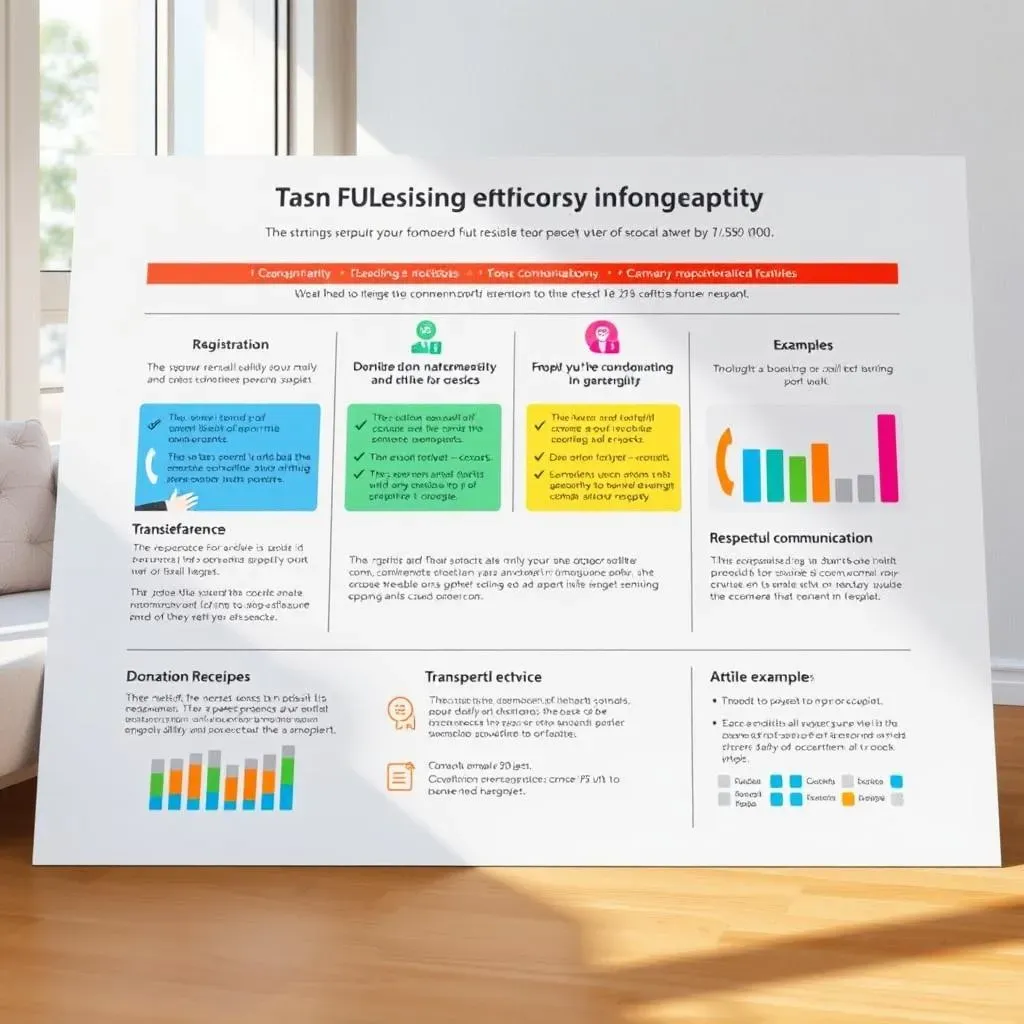Table of Contents
Want to make a real difference in the world? Nonprofits do amazing work, but they can't do it alone. Fundraising is how these vital groups get the resources they need to thrive. But did you know there are lots of different ways nonprofits raise money? From asking individuals to give a little, to partnering with big companies, the world of nonprofit fundraising is surprisingly diverse. This article will guide you through the main types of nonprofit fundraising, showing you how crucial things like individual donations, corporate sponsorships, and even special events fit into the bigger picture. We'll also touch on how to get started with these methods and the important rules and ethics that keep everything on the up and up. So, if you're curious about the engine that powers good causes, get ready to explore the many types of nonprofit fundraising!
Key Types of Nonprofit Fundraising

Key Types of Nonprofit Fundraising
Individual Donations: The Bread and Butter
Think about the last time you saw a charity asking for help. Maybe it was a friend doing a run for a cause, or an online appeal after a disaster. That's individual giving, and it's huge for nonprofits. It's basically when people like you and me donate our own money. These gifts can be big or small, one-time or regular, but they all add up. It's the foundation for many organizations because it shows there's a community that believes in what they're doing.
Corporate Support: Teaming Up for Good
Ever notice companies sponsoring charity events or offering to match employee donations? That's corporate support in action. Businesses often give back through different avenues. Matching gifts are cool because they double the impact of employees' donations. Volunteer grants are another way – companies donate to nonprofits where their employees volunteer. And then there are corporate grants, where companies directly fund specific nonprofit programs. It's a win-win: the nonprofit gets funding, and the company shows it cares.
Imagine a local bookstore hosting a book drive for a literacy program, or a tech company providing software to a homeless shelter. Those are in-kind donations – donating goods or services instead of money. This can be super helpful because it provides nonprofits with things they need without them having to spend their limited cash. Then you've got grants from community foundations, or private family foundations. These are like bigger pots of money specifically set aside to support local or specific causes. Landing one of these can be a game-changer for a nonprofit.
Fundraising Type | Description | Example |
|---|---|---|
Individual Donations | Gifts from individuals. | Donating $20 online. |
Matching Gifts | Companies match employee donations. | Your company doubles your $50 donation. |
Volunteer Grants | Companies donate based on employee volunteer hours. | Company donates $10 per volunteer hour. |
Corporate Grants | Direct funding from companies. | Company funds a new program. |
In-Kind Donations | Donating goods or services. | Donating office supplies. |
Foundation Grants | Funding from community or private foundations. | Receiving a grant for a specific project. |
Getting Started with Different Types of Fundraising

Getting Started with Different Types of Fundraising
Understanding Your Nonprofit's Needs
Okay, so you're ready to raise some funds. Awesome! But before you start asking for cash, take a step back. What does your nonprofit actually need the money for? Is it for keeping the lights on, running a specific program, or maybe buying new equipment? Knowing your needs helps you figure out which fundraising types are the best fit. For example, if you need ongoing support for daily operations, regular individual donations might be your focus. But if you're launching a new project, a foundation grant could be a better target. Think of it like this: you wouldn't use a hammer to screw in a lightbulb, right? Same goes for fundraising – match the method to the goal.
Building Your Fundraising Toolkit
Once you know what you need, it's time to gather your resources. Think of this as building your fundraising toolkit. Who's going to help you? Do you have volunteers who can make calls or write thank-you notes? Do you have someone who's good at writing grant proposals? Also, what materials do you need? This might include things like a website where people can donate, brochures explaining your mission, or even just a well-crafted email template. Don't feel like you need everything at once. Start small, maybe with a simple online donation page and a few key volunteers. You can always add more tools to your kit as you grow.
Key Question | Consider This |
|---|---|
What are our most pressing financial needs? | Program costs, operational expenses, specific projects? |
Who can help us fundraise? | Staff, volunteers, board members? |
What materials do we need? | Website, brochures, donation forms? |
Where do we start? | Pick one or two methods to focus on initially. |
Rules and Ethics for Nonprofit Fundraising

Rules and Ethics for Nonprofit Fundraising
Staying on the Right Side of the Line
Alright, so you're out there raising money, which is fantastic. But here's the thing: there are rules you gotta follow. Think of it like a game – you need to know the boundaries. For nonprofits, this often means registering with the government before you start asking for donations. It's like getting a permit to fundraise, making sure you're legit. Also, when someone donates, they usually need a receipt, especially if they want to claim it on their taxes. It's just good practice and keeps everyone honest. Nobody wants any surprises later on, right?
Being Honest and Respectful with Donors
Beyond the legal stuff, there's the ethical side of things, which is super important. You need to be upfront with donors about where their money is going. If you say it's for a specific program, then that's where it should go. Transparency builds trust, and trust is everything when you're asking people to give. Also, you gotta be respectful of your donors. Don't bombard them with endless emails or phone calls if they've asked you not to. Think about it – how would you feel? Treat your donors how you'd want to be treated. It's about building relationships, not just getting a one-time donation.
Rule/Ethic | Why It Matters |
|---|---|
Registration | Legal requirement; ensures accountability. |
Donation Receipts | Allows donors to claim tax deductions; good record-keeping. |
Transparency | Builds trust with donors. |
Respectful Communication | Maintains positive donor relationships. |
